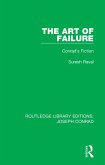How do we feel for others? Must we try to understand other minds? Do we have to respect others' autonomy, or even their individuality? Or might sympathy be fundamentally more intuitive, bodily and troubling? Taking as her focus the work of Virginia Woolf, D.H. Lawrence, and Vernon Lee (the first novelist to use the word 'empathy'), Kirsty Martin explores how modernist writers thought about questions of sympathetic response. Attending closely to literary depictions of gesture, movement and rhythm; and to literary explorations of the bodily and of transcendence; this book argues that central to modernism was an ideal of sympathy that was morally complex, but that was driven by a determination to be true to what it is to feel. Offering new readings of major literary texts, and original research into their historical contexts, Modernism and the Rhythms of Sympathy sets modernist texts alongside recent discussions of emotion and cognition. It offers a fresh reading of literary modernism, and suggests how modernism might continue to unsettle our thinking about feeling today.
Dieser Download kann aus rechtlichen Gründen nur mit Rechnungsadresse in A, B, BG, CY, CZ, D, DK, EW, E, FIN, F, GR, HR, H, IRL, I, LT, L, LR, M, NL, PL, P, R, S, SLO, SK ausgeliefert werden.









